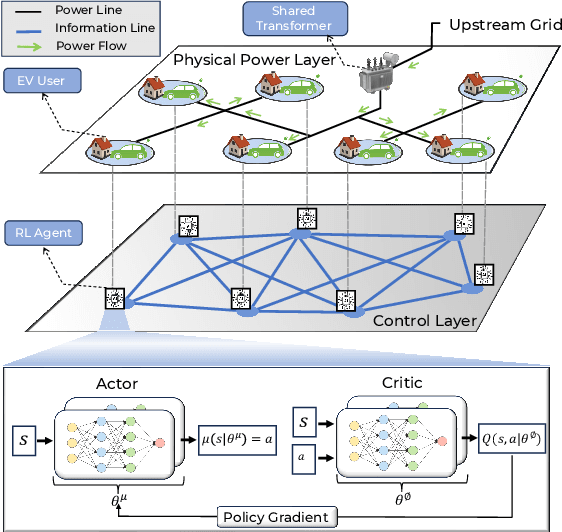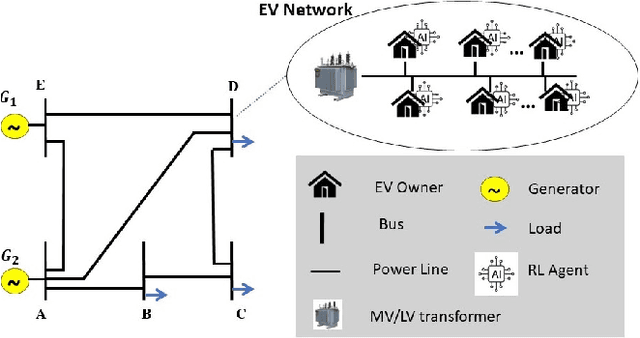Centralized vs. Decentralized Multi-Agent Reinforcement Learning for Enhanced Control of Electric Vehicle Charging Networks
Paper and Code
Apr 18, 2024



The widespread adoption of electric vehicles (EVs) poses several challenges to power distribution networks and smart grid infrastructure due to the possibility of significantly increasing electricity demands, especially during peak hours. Furthermore, when EVs participate in demand-side management programs, charging expenses can be reduced by using optimal charging control policies that fully utilize real-time pricing schemes. However, devising optimal charging methods and control strategies for EVs is challenging due to various stochastic and uncertain environmental factors. Currently, most EV charging controllers operate based on a centralized model. In this paper, we introduce a novel approach for distributed and cooperative charging strategy using a Multi-Agent Reinforcement Learning (MARL) framework. Our method is built upon the Deep Deterministic Policy Gradient (DDPG) algorithm for a group of EVs in a residential community, where all EVs are connected to a shared transformer. This method, referred to as CTDE-DDPG, adopts a Centralized Training Decentralized Execution (CTDE) approach to establish cooperation between agents during the training phase, while ensuring a distributed and privacy-preserving operation during execution. We theoretically examine the performance of centralized and decentralized critics for the DDPG-based MARL implementation and demonstrate their trade-offs. Furthermore, we numerically explore the efficiency, scalability, and performance of centralized and decentralized critics. Our theoretical and numerical results indicate that, despite higher policy gradient variances and training complexity, the CTDE-DDPG framework significantly improves charging efficiency by reducing total variation by approximately %36 and charging cost by around %9.1 on average...
 Add to Chrome
Add to Chrome Add to Firefox
Add to Firefox Add to Edge
Add to Edge